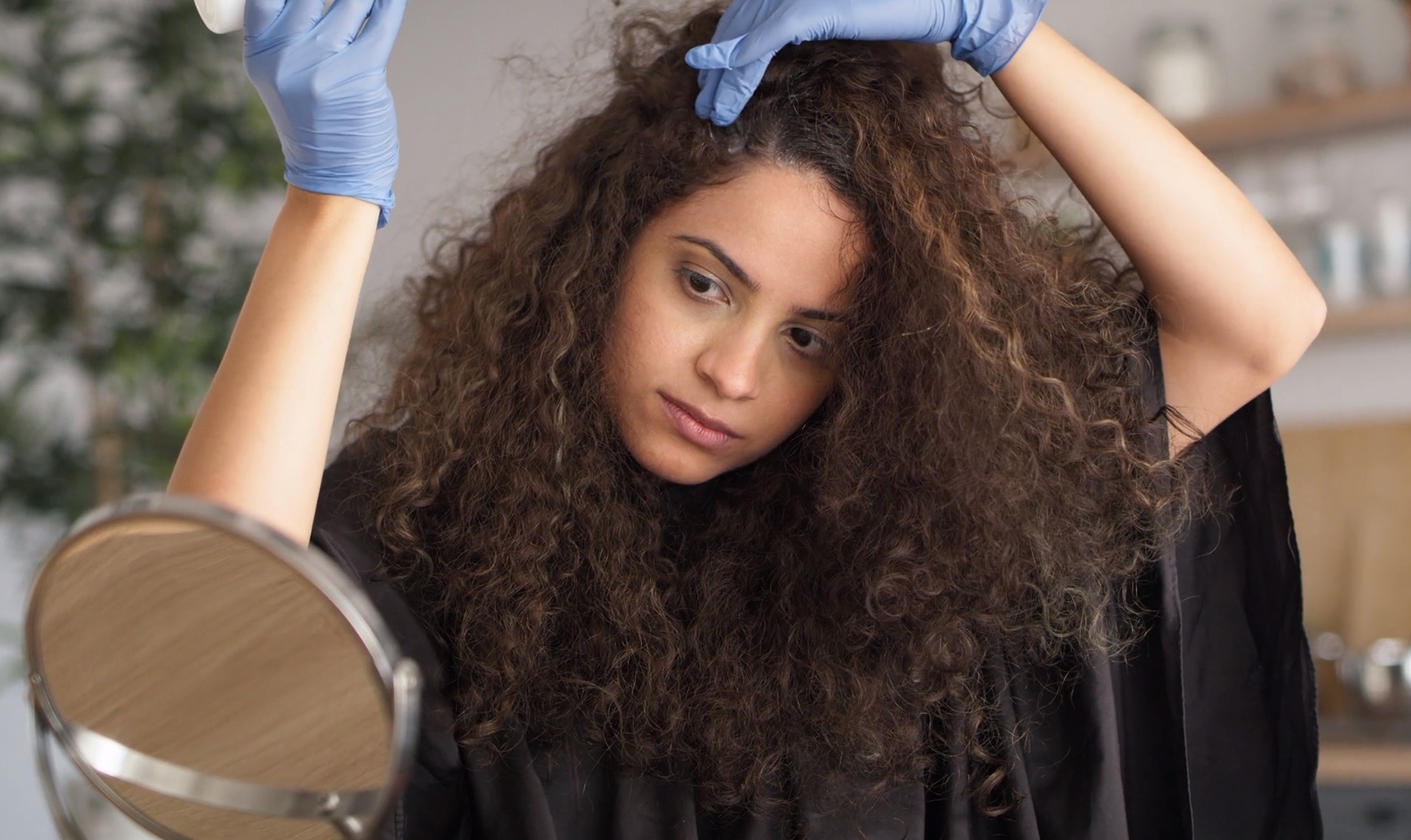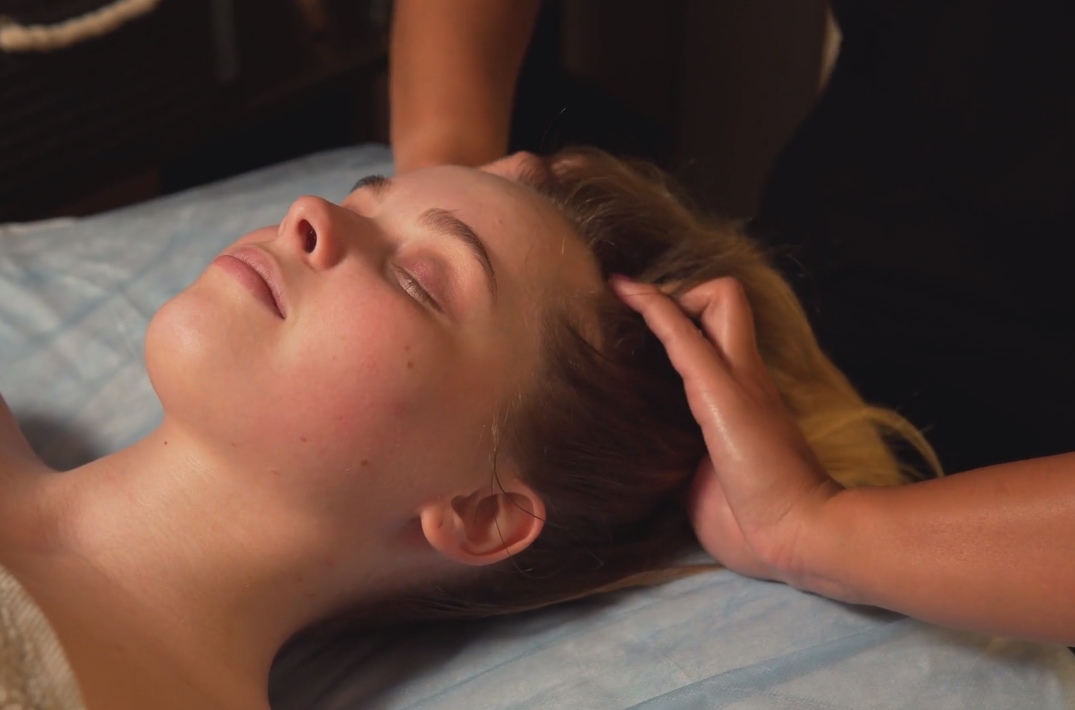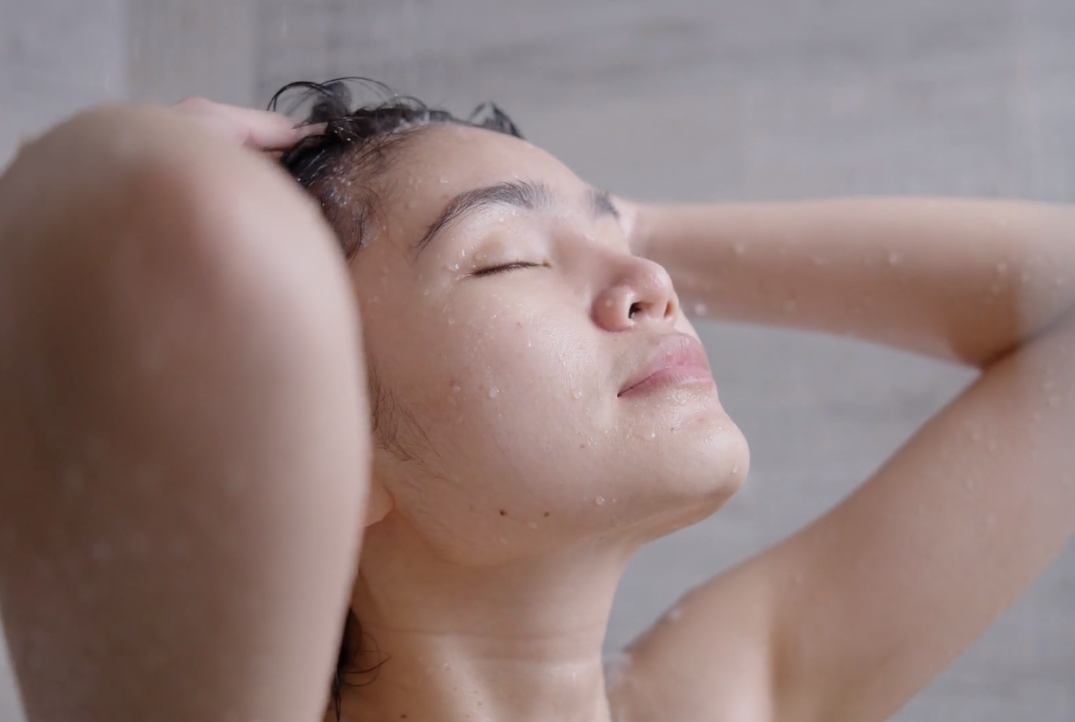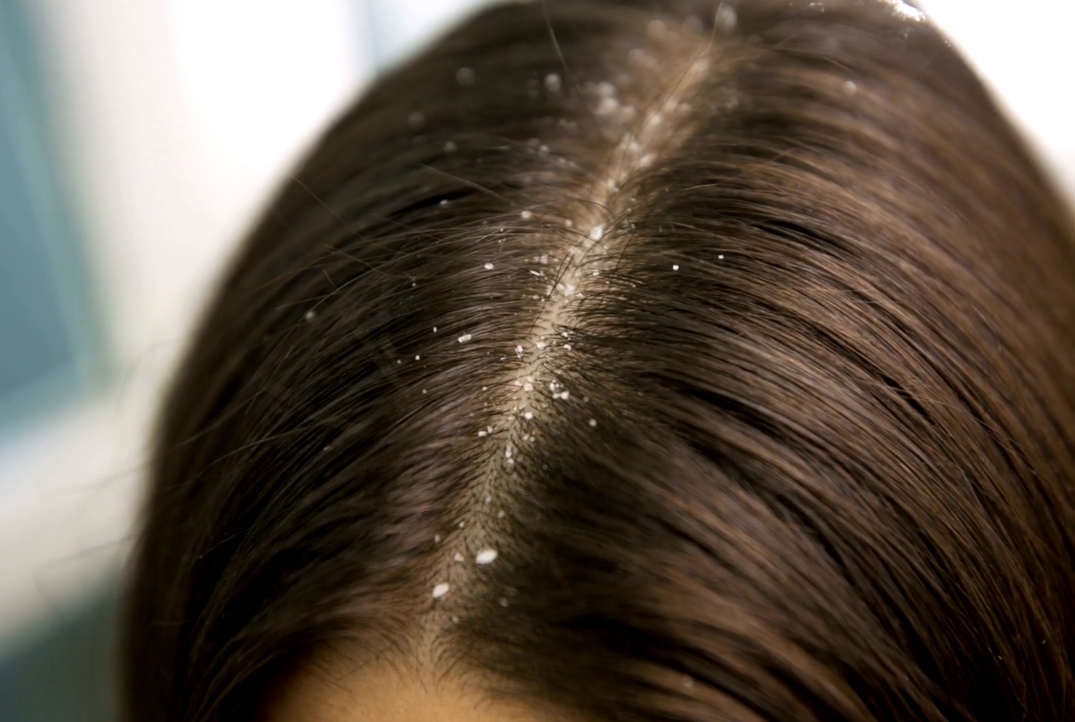I can’t stress enough the importance of scalp care for overall hair health. Think about it as the foundation for healthy hair growth. It’s where follicles are located and where it all starts. Just like the skin on your face, it demands attention and care.
I’ve seen many cases where neglecting scalp health leads to a range of issues, including hair loss, thinning, dandruff, and excessive oil production. Knowing the significance of scalp health is your first step towards achieving lush, healthy hair.
Remember, we are talking about skin, and it requires nourishment and maintenance just like the rest of your body. In my experience, a routine that includes regular cleansing with the right shampoos, hydration through conditioners, hair oils, and the occasional deep treatment can make a world of difference.
As someone who has dedicated their career to understanding hair health, among other things, I assure you that doing so is an investment in the beauty and health of your hair.
Daily Scalp Maintenance
Regular maintenance is key to a healthy scalp and, consequently, healthy hair growth. Daily care routines should include cleansing, nourishing, and occasional deep treatments. Using the right products for type is essential.
Massages are a beneficial addition to any care routine. They stimulate the follicles, promoting healthy growth. This can be done during shampooing or when applying oil treatments.
Balancing moisture is also crucial. An overly dry or excessively oily scalp can lead to various hair issues. A balanced moisturizing routine, which may include hydrating serums or oils, can help maintain the health. It’s also important to adapt your care routine based on your unique type.
For example, those with an oily scalp may need to shampoo more frequently, while those with a dry scalp may benefit from more hydrating products.
Different Techniques
Adopting the right scalp care techniques is crucial for maintaining a healthy surface and promoting hair growth.
Enhanced Blood Flow
Scalp massages are a cornerstone of effective care, offering both relaxation and health benefits. According to a study, regularly massaging your scalp can stimulate blood flow, which is crucial for nourishing follicles and promoting healthy growth.
This increased circulation delivers essential oils and nutrients and oxygen to the roots, strengthening them and encouraging growth. Massages can be performed manually using your fingertips or with the aid of a specialized massager.
The technique involves gentle, circular motions across the scalp, which not only feels soothing but also helps in relieving stress, a known contributor to issues like thinning and loss.
Deep Cleansing
Deep cleansing is vital in maintaining a clean and healthy scalp. Regular use of a scrub or a dandruff shampoo helps in removing dead skin cells, excess oil, and product buildup. This is particularly important for individuals with an oily surface or those who frequently use hair styling products.
A clean scalp is less prone to issues like dandruff, itching, and folliculitis. Scrubs typically contain ingredients that gently exfoliate the scalp, while dandruff shampoos are formulated to target the yeast and bacteria that can cause flaking and itching.
Nourishing and Conditioning
Nourishing and conditioning the scalp post-cleansing is essential for maintaining its health. Using a conditioner that matches your type can provide the necessary hydration and nutrients. A hydrating conditioner or a specialized mask can be particularly beneficial.
These products help in adding moisture back, preventing issues like dryness and flakiness. Conditioners and masks often contain ingredients like natural oils, vitamins, and plant extracts that soothe and nourish, creating a healthy environment for growth.
Balanced Moisturizing
Balanced moisturizing is key to a healthy scalp. It’s important to strike the right balance between too much and too little moisture. Over-moisturizing can lead to an oily, heavy scalp, while under-moisturizing can result in dryness and irritation.
Individuals with oily scalps may benefit from lightweight, non-greasy hydrating products that provide moisture without adding excess oil.
Effective Scalp Treatments and Products
For optimal scalp health and hair growth, incorporating effective scalp treatments and products into your routine is essential.
Zinc Pyrithione or Salicylic Acid Shampoos for Dandruff
When dealing with dandruff, shampoos containing zinc pyrithione or salicylic acid are highly effective. Zinc pyrithione works by reducing the fungus that causes dandruff and seborrheic dermatitis. It has antimicrobial and antifungal properties, making it ideal for treating and preventing dandruff.
On the other hand, salicylic acid helps in removing scaly skin and reducing scalp buildup. It acts as a peeling agent, accelerating the shedding of dead skin cells, thus reducing flakiness and itchiness. Regular use of these shampoos can significantly improve health and reduce dandruff symptoms.
Hydrating and Soothing Products for Dry, Itchy
For those with a dry and itchy scalp, products containing hydrating and soothing ingredients like aloe vera or tea tree oil are beneficial. Aloe vera is known for its moisturizing and healing properties. It can provide much-needed hydration to a dry scalp, reducing itchiness and flakiness.
Tea tree oil, with its natural antiseptic, anti-inflammatory, and antimicrobial properties, can soothe an itchy scalp and help manage conditions like dandruff. These ingredients not only relieve discomfort but also promote a healthier scalp environment conducive to hair growth.
Scrubs for Exfoliation and Buildup Removal
Scalp scrubs are essential for exfoliating dead skin cells and removing buildup. They work by gently scrubbing away dead skin, excess oil, and product residue, keeping the scalp clean and pores unclogged. This is crucial for preventing conditions like dandruff and scalp acne.
Regular exfoliation can also improve blood circulation, enhancing the delivery of nutrients to follicles. This promotes a healthier scalp and can encourage growth. Using a scrub once or twice a week can be a game-changer in your hair care routine.
Conditioners and Leave-in Treatments for Hydration
Conditioners and leave-in treatments play a vital role in maintaining scalp health. Conditioners with ingredients like natural oils and botanical extracts can leave the feeling nourished and the hair looking shiny and healthy.
Leave-in treatments can offer additional benefits like detangling, heat protection, and added moisture, making them a valuable addition to your scalp care regimen.
Common Conditions and Their Impact
Unhealthy scalp conditions can have a profound impact on hair health, often leading to issues such as hair loss, thinning, and lackluster hair quality. Understanding these common scalp problems is essential for effective scalp care and maintaining overall hair health.
| Condition | Causes and Triggers | Impact on Hair Health |
|---|---|---|
| Dandruff | Excessive oil production, overgrowth of Malassezia fungus | Flakiness and itchyness leading to discomfort and potential weakening |
| Seborrheic Dermatitis | Similar to dandruff, often with more severe symptoms | Intense flakiness, redness, and irritation, potentially affecting growth |
| Scalp Psoriasis | Autoimmune condition, can be triggered by infections, cuts, stress | Scaly patches, discomfort, can lead to thinning |
| Scalp Folliculitis | Bacterial, fungal, viral, or mite infections | Inflammation, redness, pus-filled bumps, can cause severe loss if untreated |
| Alopecia Areata | Autoimmune response, genetic factors | Sudden loss in patches, can progress to more significant loss |
| Pattern Baldness | Aging, heredity, hormonal changes | Gradual thinning and loss, particularly affecting the hairline and crown |
Recognizing the signs and symptoms of these conditions is crucial for early intervention and treatment. Regular use of targeted treatments, such as dandruff shampoos for dandruff and seborrheic dermatitis, and medical interventions for more severe conditions like alopecia and psoriasis, can help manage these issues.
Maintaining a balanced care routine is also key to minimizing the risk and impact of these conditions on health.
Essential Vitamins and Nutrients for Scalp Nourishment
Nourishing the scalp with essential vitamins and nutrients is a fundamental aspect of maintaining scalp health and promoting robust growth. A well-nourished scalp provides the ideal foundation for strong, healthy hair. Key nutrients that are vital for scalp health include vitamin D3, iron, ferritin, zinc, folate, and biotin.
These nutrients play a critical role in supporting follicles and preventing common issues like dry scalp and dandruff, which can be detrimental to health. Vitamin D3 is crucial for the creation of new follicles.
It helps in the regeneration of hair and maintaining a healthy cycle of growth and shedding. Iron, another essential nutrient, aids in carrying oxygen to hair roots. This is vital for hair growth as it boosts circulation and ensures that follicles receive the necessary nutrients and oxygen.
Ferritin, a stored form of iron, is also important as low levels can lead to hair loss. Zinc is essential for hair tissue growth and repair. It plays a significant role in follicle health, and a deficiency in zinc can lead to loss and a dry, flaky scalp.
Folate, or vitamin B9, aids in cell growth and is important for growth and health. A balanced diet rich in these nutrients is crucial for care. Foods high in vitamins and minerals, such as leafy greens, nuts, seeds, fish, and lean meats, provide the necessary nourishment, promoting healthy hair growth.
Lifestyle Factors Influencing Scalp Health
Scalp health is not only influenced by external care but also significantly affected by lifestyle factors.
Balanced Diet
A balanced diet plays a fundamental role in maintaining scalp health. Consuming foods rich in essential nutrients, vitamins, minerals, and antioxidants is crucial as they support hair follicles and promote a healthy environment.
Protein, a key building block, should be adequately included in your diet. Foods like lean meats, eggs, and legumes are excellent protein sources. Omega-3 fatty acids, found in fish, nuts, and seeds, are also vital as they help maintain hydration and prevent dryness.
Stress Management
Stress management is critical for maintaining scalp health. High stress levels can lead to hair loss conditions such as telogen effluvium, where there is excessive shedding. Managing stress through relaxation techniques like meditation, yoga, or deep breathing exercises can be beneficial.
Regular physical activity is also an effective stress reliever and promotes overall well-being, which in turn positively affects health. Ensuring adequate and quality sleep is another important aspect of stress management, as it allows the body to repair and regenerate, including the health of your hair.
Hygiene Practices
Good hygiene practices are essential for a healthy scalp. Regular hair washing helps prevent the buildup of oils, sweat, and dead skin cells, which can clog follicles and impede hair growth. Using clean hair tools and products also minimizes the risk of infections.
It’s important to choose shampoos and conditioners that are suitable for your type and condition. Additionally, avoid overly hot water when washing your hair, as it can strip it of its natural oils, leading to dryness and irritation.
Environmental Protection
Protecting the scalp from environmental factors is crucial for its health. Prolonged exposure to the sun can cause damage, leading to dryness and brittleness. Wearing a hat or using hair products with UV protection can help shield the scalp from harmful sun rays.
Similarly, exposure to pollution can lead to buildup and irritation. Washing your hair after exposure to pollutants and using anti-pollution hair care products can help with maintaining. Remember, your scalp is just as vulnerable to environmental damage as your skin, and it requires similar protective measures.
FAQs
Summary
Maintaining a healthy scalp is crucial for promoting strong hair growth and preventing hair loss.
I’ve gained an understanding of the importance of recognizing and managing various scalp conditions, the critical role played by essential nutrients, the necessity of daily scalp maintenance, the effectiveness of specific treatments and products, and how lifestyle factors significantly impact scalp health.
I’ve learned that regularly cleansing, nourishing, and treating my scalp with appropriate products is essential. This knowledge empowers me to take better care of my scalp, ensuring it remains healthy and thereby fostering an optimal environment for hair growth.
Related Posts:
- 6 Best Shampoo for Hair Growth in 2024 - Conducting…
- Can a Court Order a Psychiatric Evaluation? - Ultimate Guide
- The Ultimate Night Routine – The 10 Best Evening Habits
- 7 Best Biotin for Hair Growth in 2024- Top Picks +…
- Does Argan Oil Help Hair Growth and How to Use it Properly?
- 5 Best Hair Growth Products in 2024 - Market’s Elite



















